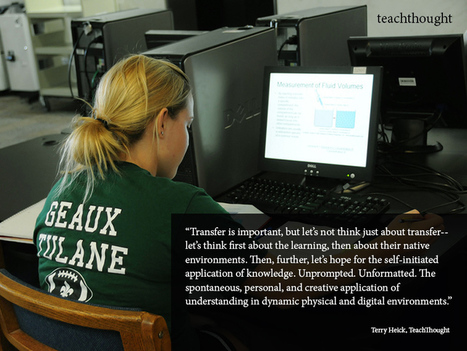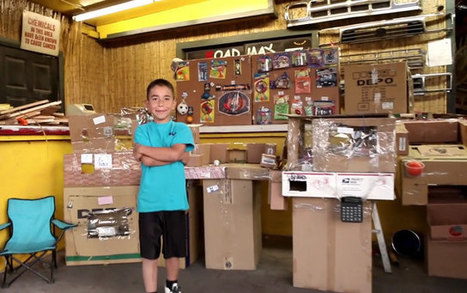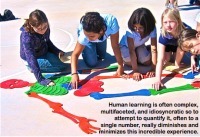"Testing is a major challenge in education.
Agreeing on what’s to be tested and how it’s to be administered is a matter of much debate. It’s also a big business...
[Common Core testing may include] adaptive computer-based testing to the existing assessments forms, which in many states include short-written responses. While efforts like these continue, there remains a chasm between the progressive vision of a 21st century learning environment, and a decidedly 20th century assessment style.



 Your new post is loading...
Your new post is loading...












If the goal in education is to graduate students whom are 21st century ready (a century we are already 14 years into) the question of appropriate testing comes up. This post explores this issue and shares what may be taking place in a classroom and how it is not necessarily testable with paper and pencil. Therefore as educators we need to "promote self-initiated transfer."
The post is split into three sections. The first section looks at testing today. The second section provides "a picture of 21st century learning." The third section explores the challenge, the fact that in theory we are teaching one way and assessing a different way (and as they refer to it in the post, we may be teaching 21st century but we are using an assessment tool that is 20th century). The final section explores one possible solution.
There is much to ponder on in this post which may lead you to think of ways to help students take ownership of learning how to effectively transfer knowlege.